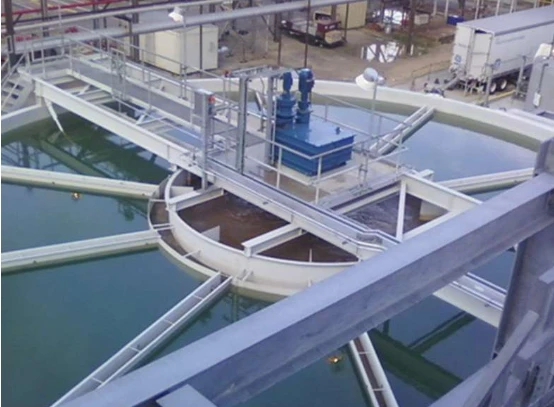
-
 Afrikaans
Afrikaans -
 Albanian
Albanian -
 Amharic
Amharic -
 Arabic
Arabic -
 Armenian
Armenian -
 Azerbaijani
Azerbaijani -
 Basque
Basque -
 Belarusian
Belarusian -
 Bengali
Bengali -
 Bosnian
Bosnian -
 Bulgarian
Bulgarian -
 Catalan
Catalan -
 Cebuano
Cebuano -
 China
China -
 China (Taiwan)
China (Taiwan) -
 Corsican
Corsican -
 Croatian
Croatian -
 Czech
Czech -
 Danish
Danish -
 Dutch
Dutch -
 English
English -
 Esperanto
Esperanto -
 Estonian
Estonian -
 Finnish
Finnish -
 French
French -
 Frisian
Frisian -
 Galician
Galician -
 Georgian
Georgian -
 German
German -
 Greek
Greek -
 Gujarati
Gujarati -
 Haitian Creole
Haitian Creole -
 hausa
hausa -
 hawaiian
hawaiian -
 Hebrew
Hebrew -
 Hindi
Hindi -
 Miao
Miao -
 Hungarian
Hungarian -
 Icelandic
Icelandic -
 igbo
igbo -
 Indonesian
Indonesian -
 irish
irish -
 Italian
Italian -
 Japanese
Japanese -
 Javanese
Javanese -
 Kannada
Kannada -
 kazakh
kazakh -
 Khmer
Khmer -
 Rwandese
Rwandese -
 Korean
Korean -
 Kurdish
Kurdish -
 Kyrgyz
Kyrgyz -
 Lao
Lao -
 Latin
Latin -
 Latvian
Latvian -
 Lithuanian
Lithuanian -
 Luxembourgish
Luxembourgish -
 Macedonian
Macedonian -
 Malgashi
Malgashi -
 Malay
Malay -
 Malayalam
Malayalam -
 Maltese
Maltese -
 Maori
Maori -
 Marathi
Marathi -
 Mongolian
Mongolian -
 Myanmar
Myanmar -
 Nepali
Nepali -
 Norwegian
Norwegian -
 Norwegian
Norwegian -
 Occitan
Occitan -
 Pashto
Pashto -
 Persian
Persian -
 Polish
Polish -
 Portuguese
Portuguese -
 Punjabi
Punjabi -
 Romanian
Romanian -
 Russian
Russian -
 Samoan
Samoan -
 Scottish Gaelic
Scottish Gaelic -
 Serbian
Serbian -
 Sesotho
Sesotho -
 Shona
Shona -
 Sindhi
Sindhi -
 Sinhala
Sinhala -
 Slovak
Slovak -
 Slovenian
Slovenian -
 Somali
Somali -
 Spanish
Spanish -
 Sundanese
Sundanese -
 Swahili
Swahili -
 Swedish
Swedish -
 Tagalog
Tagalog -
 Tajik
Tajik -
 Tamil
Tamil -
 Tatar
Tatar -
 Telugu
Telugu -
 Thai
Thai -
 Turkish
Turkish -
 Turkmen
Turkmen -
 Ukrainian
Ukrainian -
 Urdu
Urdu -
 Uighur
Uighur -
 Uzbek
Uzbek -
 Vietnamese
Vietnamese -
 Welsh
Welsh -
 Bantu
Bantu -
 Yiddish
Yiddish -
 Yoruba
Yoruba -
 Zulu
Zulu
Innovative Solutions for Durable Fiberglass Fitting Applications and Installations
Understanding Fiberglass Fittings An Essential Component in Modern Construction
Fiberglass fittings are increasingly becoming a cornerstone in various construction and manufacturing projects. Known for their lightweight yet robust characteristics, these fittings provide solutions across diverse applications, including plumbing, electrical conduits, and industrial equipment. This article aims to elucidate the significance of fiberglass fittings, their advantages, and their applications in contemporary industries.
What are Fiberglass Fittings?
Fiberglass fittings are components made from fiberglass-reinforced plastic (FRP), a composite material that combines the strength of fiberglass with the versatility of plastic. The process typically involves embedding glass fibers within a resin matrix, resulting in a durable material that is resistant to corrosion, chemicals, and extreme temperatures. This makes fiberglass fittings particularly suitable for environments that would otherwise damage conventional materials like metal or PVC.
Advantages of Fiberglass Fittings
1. Lightweight One of the most notable benefits of fiberglass fittings is their lightweight nature. Compared to metal fittings, fiberglass fittings are significantly easier to handle, transport, and install. This reduces labor costs and time on job sites.
2. Corrosion Resistance Fiberglass is inherently resistant to many corrosive substances, making it ideal for use in chemical plants, wastewater treatment facilities, and other industrial applications where contact with harsh chemicals is commonplace.
3. Durability Fiberglass fittings exhibit high tensile strength and impact resistance. They can withstand extreme environmental conditions, which encourages their use in marine applications, oil and gas industries, and construction projects.
5. Ease of Installation Fiberglass fittings can be manufactured in various shapes and sizes to accommodate specific project requirements. Furthermore, their lightweight quality simplifies the installation process, making them a favorite among contractors.
fiberglass fitting

6. Low Maintenance Due to their resistance to corrosion and environmental factors, fiberglass fittings require minimal maintenance, resulting in long-term cost savings for users.
Applications of Fiberglass Fittings
1. Plumbing Systems In residential and commercial plumbing, fiberglass fittings are employed to connect pipes and facilitate water flow. Their resistance to corrosion makes them particularly suitable for systems carrying water that may contain chemicals or impurities.
2. Electrical Conduits Fiberglass fittings protect electrical wiring systems by providing insulating properties that prevent short circuits and electrical mishaps. They are widely used in industrial plants and outdoor installations.
3. Mining and Oil Industries Fiberglass fittings are utilized in pipelines for the transportation of oil, gas, and minerals. Their ability to withstand the chemical nature of these substances makes them invaluable in these sectors.
4. Wastewater Treatment In sewage and wastewater management, fiberglass fittings are used in various applications such as piping and storage tanks, where resistance to corrosion and environmental degradation is crucial.
5. Aquaculture In the fish farming industry, fiberglass fittings provide a reliable solution for water movement systems, where durability and bio-resistance are essential.
Conclusion
In conclusion, fiberglass fittings have emerged as an indispensable element in modern construction and manufacturing. Their unique combination of lightweight construction, corrosion resistance, and durability make them suitable for a wide range of applications. As industries continue to evolve, the demand for efficient, reliable, and versatile fittings is only expected to grow. Embracing advancements in technology and materials science will further enhance the capabilities and applications of fiberglass fittings, solidifying their place in the future of construction and manufacturing sectors. Whether in plumbing, electrical systems, or industrial applications, fiberglass fittings are undoubtedly a significant contributor to the durability and efficiency of modern infrastructure.









